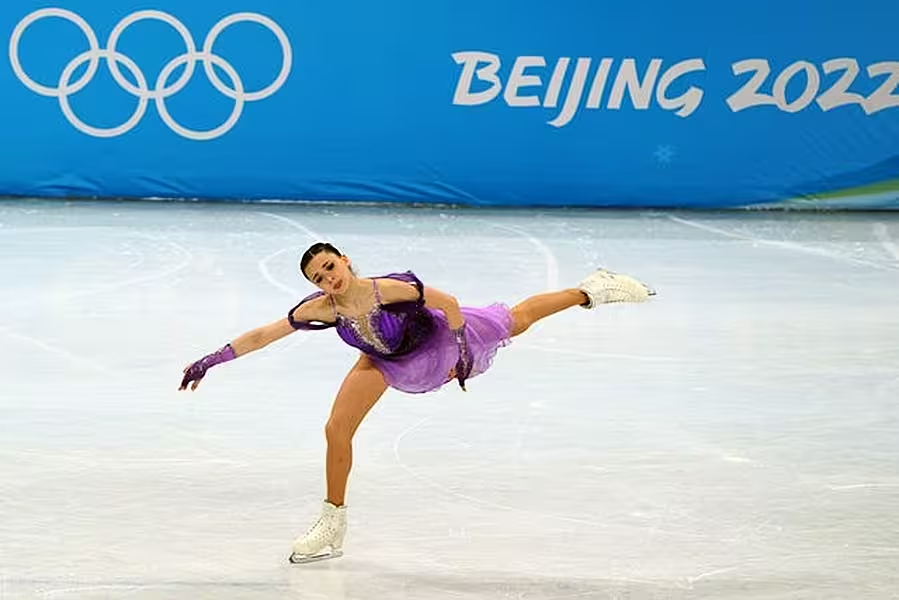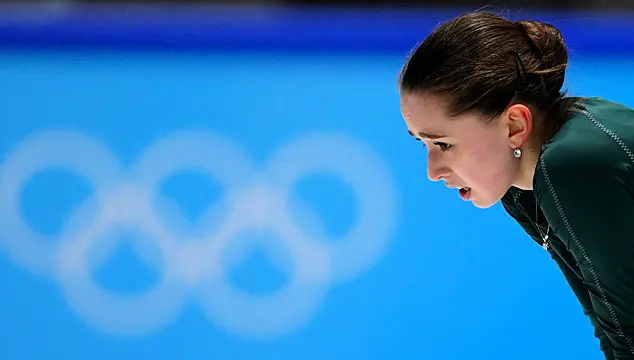Kamila Valieva has been cleared to continue to compete at the Winter Olympics despite testing positive for the banned heart medication trimetazidine.
An ad-hoc committee set up by the Court of Arbitration for Sport determined that no provisional suspension should be imposed on the 15-year-old Russian figure skater.
Here, we take a look at how one of the biggest controversies in the history of the Games unfolded in Beijing.
HISTORY MADE!
15-year-old Kamila Valieva becomes the first woman to land a quadruple jump at an Olympic Games. 🤯#Beijing2022 #figureskating pic.twitter.com/zHxRiETNfi— The Olympic Games (@Olympics) February 7, 2022
February 6th: Valieva makes her Olympic debut in the short program section of the mixed team event. Her routine scores 90.18, just short of her own world record of 90.45.
February 7th: Valieva becomes the first female figure skater to land quad jumps in an Olympic Games, as her free skate routine seals victory for Russia in the mixed team event.
February 8th: The medal ceremony for the mixed team is event is delayed due to what the International Skating Union (ISU) describe as a “legal issue” which requires further consultation.
February 9th: The ‘Inside The Games’ website names Valieva as the figure skater at the centre of a doping probe which is delaying the awarding of medals.

February 11th: The International Testing Agency (ITA) confirms Valieva tested positive for the banned heart medication trimetazidine on Christmas Day. It says it is appealing the lifting of a provisional suspension by the Russian Anti-Doping Agency (RUSADA).
February 12th: The World Anti-Doping Agency (WADA) and the ISU confirm they have also filed suits to the Court of Arbitration for Sport, whose ad-hoc committee meets to determine the case. Valieva, who continues to practice in Beijing, makes an appeal by video-link.
February 14th: The CAS announces that Valieva has been cleared to continue to compete. CAS cited “exceptional circumstances” for the decision, essentially revolving around her status as a ‘protected person’ on the World Anti-Doping Code.







